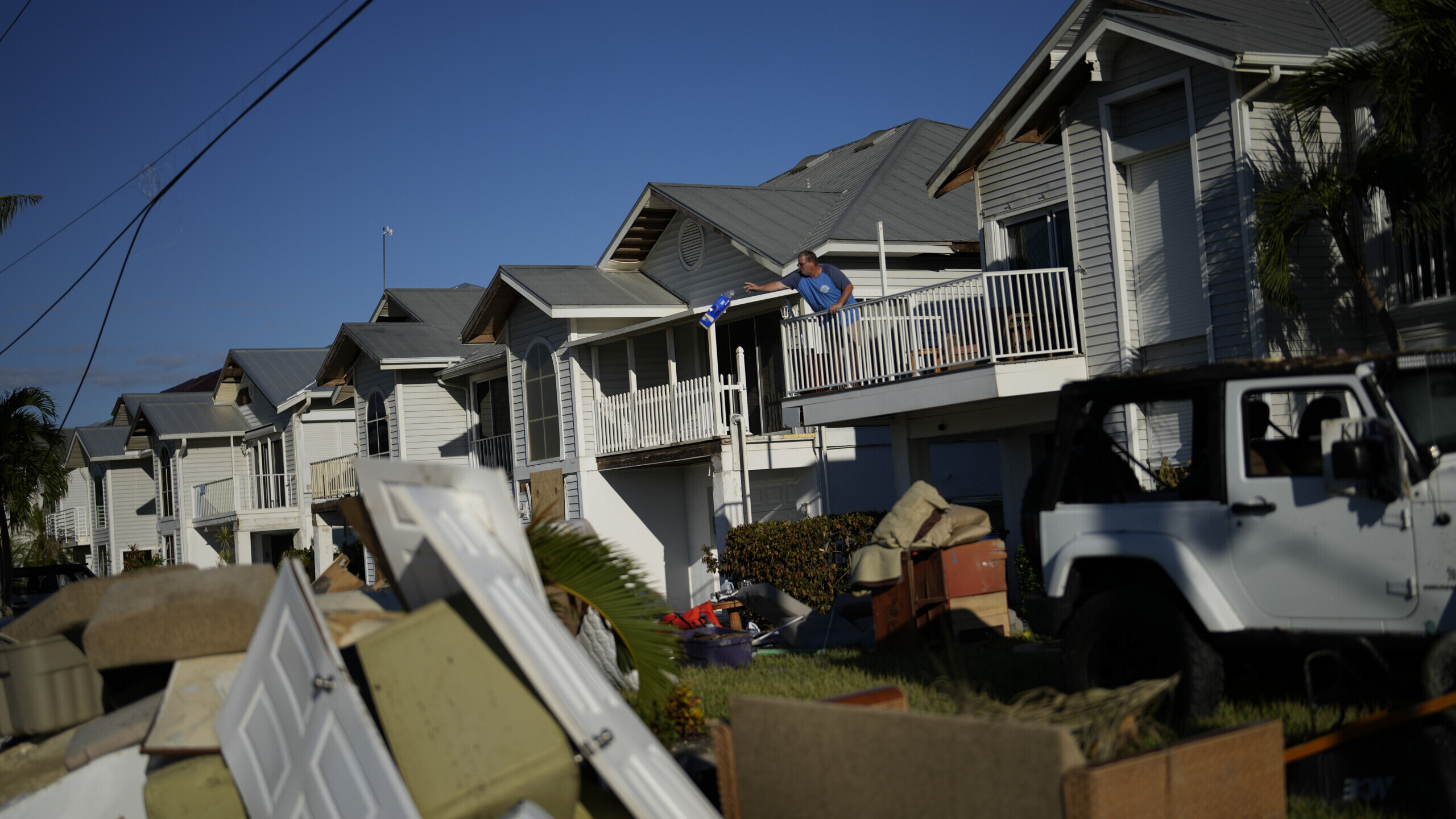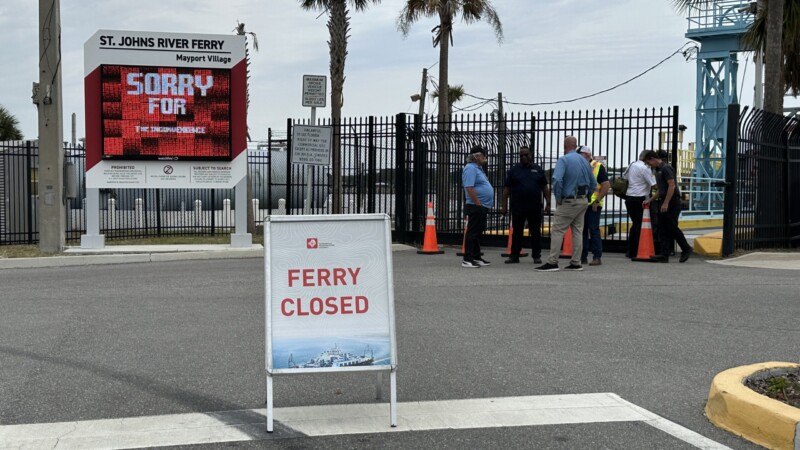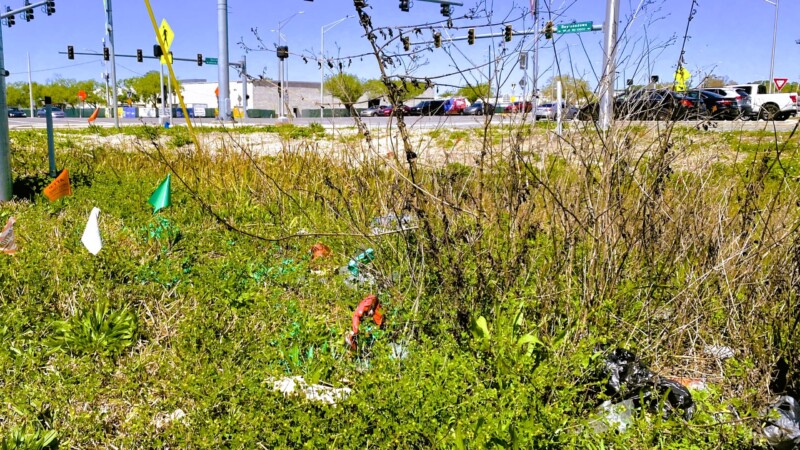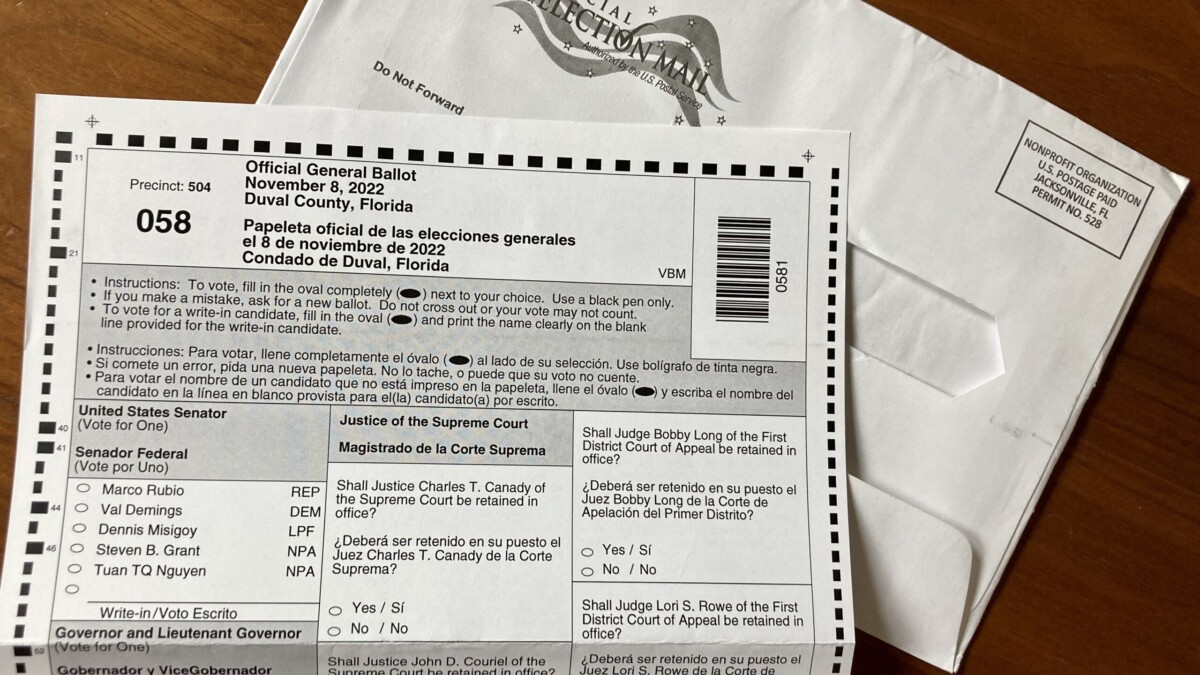Florida voters are being asked to decide whether to approve two property-tax measures and the fate of the state’s Constitution Revision Commission.
Lawmakers placed three proposed constitutional amendments on the ballot, including two that would provide property-tax breaks.
One of those measures, which will appear on the ballot as Amendment 1, would prevent properties’ assessed values from going up because of improvements aimed at combating flooding. The other proposed tax break, which will appear as Amendment 3, would expand the homestead property-tax exemption for teachers, first responders and military members.
Meanwhile, what will appear as Amendment 2 would repeal the Florida Constitution Revision Commission, a panel that meets every 20 years and has the power to propose ballot measures. The commission drew controversy in 2018 because of some of its proposals.
In the run-up to the Nov. 8 elections, the property-tax and Constitution Revision Commission proposals have drawn little visible campaigning or educational efforts. Each proposal would require approval from 60 percent of voters to pass.
“I think these three proposals are somewhat less controversial than many we have seen in the recent past,” University of Central Florida political-science professor Aubrey Jewett said. “None are particularly high-profile compared to issues like Fair Districts, medical marijuana, $15 minimum wage, and restoration of felon voting rights. Because of that, they are being largely overshadowed by the governor and U.S. Senate race.”
Here are snapshots of the proposals:
AMENDMENT 1
Amendment 1, part of efforts to address the effects of rising sea levels and climate change, is aimed largely at helping property owners who elevate all or parts of their homes.
If approved by voters, such improvements would not be considered in determining assessed values. Elevation work would require meeting National Flood Insurance Program and Florida Building Code standards.
A 2021 Senate staff analysis said the proposed constitutional amendment would reduce local government property-tax revenues by $5.8 million during the 2023-2024 fiscal year, with the amount growing to $25.1 million annually. The estimate was made after Florida property owners in the prior 20 years made more than 4.85 million flood-damage claims through the Federal Emergency Management Agency.
When pitching the proposal, Rep. Linda Chaney, R-St. Pete Beach, said homeowners taking proactive measures against rising seas “should not only be rewarded, but they should be incentivized.”
AMENDMENT 2
Voters created the Constitution Revision Commission in 1968. But the 37-member commission drew the ire of lawmakers in 2018 after it placed a series of issues on the ballot that touched on issues ranging from new ethics standards for public officials to a ban on greyhound racing.
The commission’s members are appointed by the governor, legislative leaders, the Supreme Court chief justice and attorney general. In part, the 2018 controversy centered on it creating “bundled” ballot proposals that tied together seemingly unrelated topics, such as one proposal to ban offshore oil drilling and indoor vaping.
Sen. Jeff Brandes, a St. Petersburg Republican who sponsored the proposal aimed at repealing the commission, said last year that the commission’s members did not have accountability.
But Sen. Darryl Rouson, a St. Petersburg Democrat who served on the commission, argued that lawmakers should have focused on prohibiting the bundling of proposals to avoid voter confusion. He said eliminating the panel “will make it harder for citizen voices to be heard in shaping the future of their state.”
Similarly, the League of Women Voters of Florida said that while the 2018 commission was “political” and put amendments forward that “made it difficult to separate valid issues,” the repeal proposal would remove “a generational opportunity for citizens to update their Constitution.”
Ballot measures also can be proposed by the Legislature, through citizens’ initiatives and by the Florida Taxation and Budget Reform Commission, which was also created in 1968 and meets every 20 years.
AMENDMENT 3
With legislative supporters saying it would help address rising housing costs, Amendment 3 would increase the homestead exemption for teachers, law-enforcement officers, correctional officers, firefighters, emergency-medical technicians, paramedics, child-welfare services professionals and active-duty members of the military and Florida National Guard.
The change, if passed, is projected to save $80.9 million for the targeted property owners next fiscal year, with the annual savings growing to $93.6 million in five years.
During this year’s legislative session, the Florida Association of Counties opposed the proposal, saying it could shift more of the tax burden to businesses and to renters, who would include members of the targeted professions. However, the association hasn’t taken a position on the amendment in the November election.
Sen. Bobby Powell, D-West Palm Beach, cast the only vote against the measure in the Legislature, arguing in March that lawmakers should focus first on affordable-housing problems as prices and rents soar.
“I am of the belief that the priority at this point should be to figure out how we can get police and firefighters and teachers into a home, whether it be first-time homebuyers, whatever it be, we need to figure out how to get them into homes,” Powell said.
Under current law, homeowners can qualify for homestead exemptions on the first $25,000 of the appraised value of property. They also can qualify for $25,000 homestead exemptions on the value between $50,000 and $75,000. Any higher property value is taxable.
Under the proposal, homeowners in the targeted professions could receive an additional $50,000 exemption, which would apply to the property value between $100,000 and $150,000.
The current exemption for the value between $50,000 and $75,000 doesn’t apply to property taxes collected for school districts, and neither would the proposed amendment.
By Jim Turner, News Service of Florida






